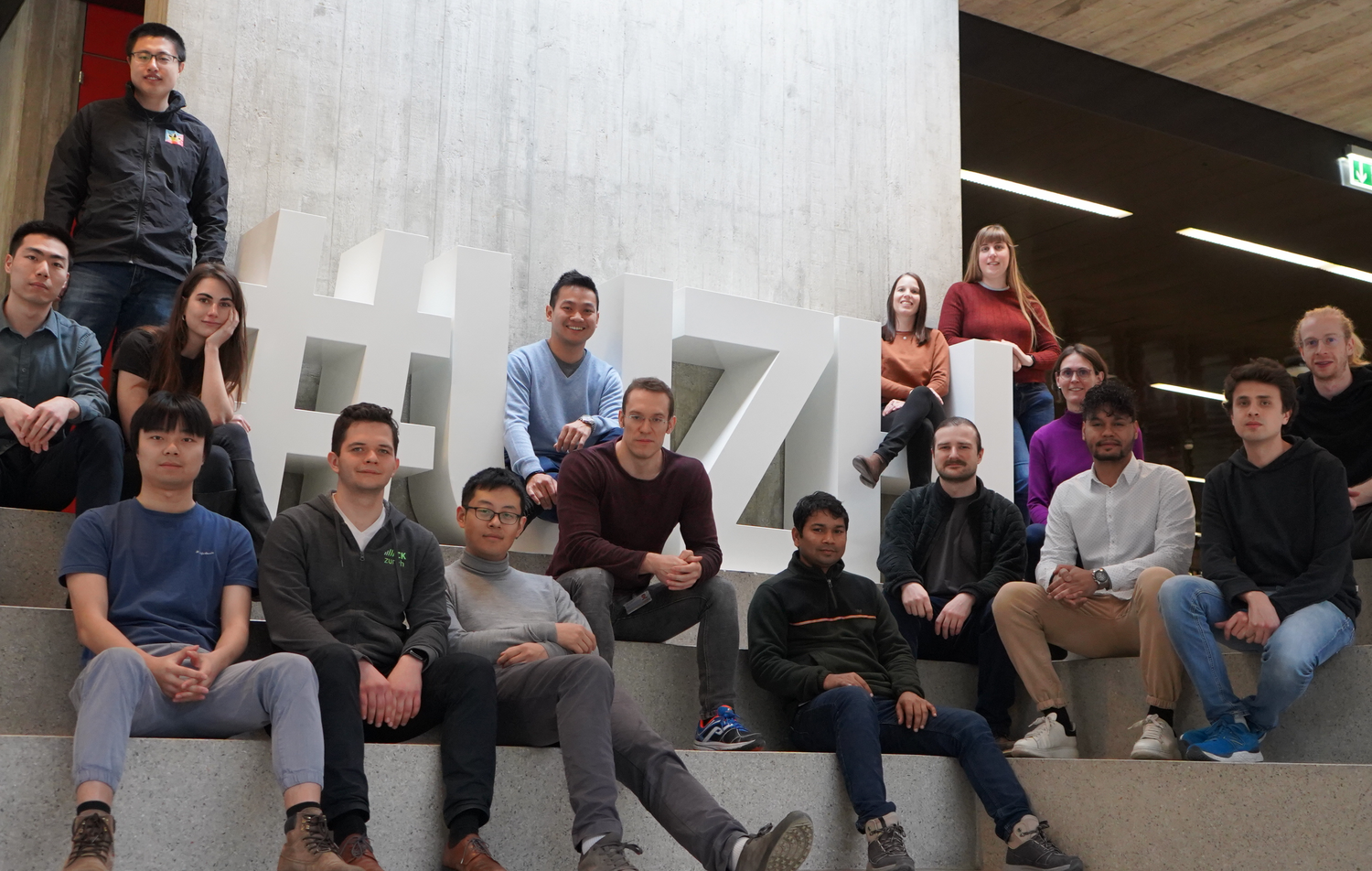Luber Group
Our research
Our research deals with the development of theoretical methods at the interface of chemistry, biology, physics, and materials science. In particular, approaches derived from quantum mechanics have been in the focus of our work. We use various methods including wavefunction- and density functional theory-based approaches as well as ab initio molecular dynamics, enhanced sampling methods, Quantum Monte Carlo, and quantum mechanics/molecular mechanics. Applications encompass a broad range of systems ranging from (bio-)molecules and functional coordination compounds to condensed phase systems and solar light-driven processes.
Overview of our research interests
The group

absent: A. Sinyavskiy
Open positions
Students interested in pursuing a Master's thesis are encouraged to contact Sandra Luber to discuss possible projects (e.g. studies of catalytic systems, small programming/method development projects). Applications for a doctoral or postdoctoral position are highly welcome from exceptional students. For further details, please email Sandra Luber.
- 04 March 2024 - Rangsiman is awarded the 2024 CMSZH Travel Award sponsored by CMSZH, University of Zurich, for participation at international conferences.
- 20 December 2023 - Sandra, together with Jeremy has published the the conference report Symposium of Theoretical Chemistry in Zurich in Chimia.
- 04 January 2024 - Eva, Momir and Sandra published a research article on A Local Diabatisation Method for Two-State Adiabatic Conical Intersections in Journal of Chemical Theory and Computation.
- 27 October 2023 - Fabrizio has received the Spark funding grant from the Swiss National Science Foundation (SNSF).
- 20 September 2023 - Open PhD position in our group

